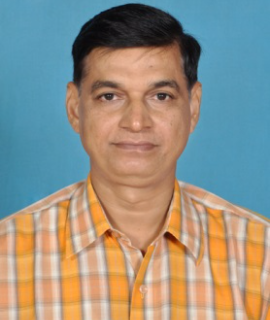Title : Strategic efforts towards development of a cell culture attenuated duck plague vaccine using an Indian virulent field isolate
Abstract:
Duck farming occupies an important position next to chicken farming in the Asian continent. Among various diseases affecting the duck populations, duck plague (DP) or duck viral enteritis, caused by Anatid herpesvirus-1, is the most significant contagious viral disease reported worldwide very frequently, causing huge economic losses due to high morbidity and mortality. The main strategy for combating this disease is through vaccination. In India, presently a live attenuated chicken egg adapted DP vaccine, originally imported from Netherlands, is being used for prevention of DP since more than five decades. The present process of vaccine preparation by propagating the vaccine virus in developing chicken eggs appears to be very cumbersome along with other limitations. Therefore, we have attempted to develop a cell culture-based indigenous vaccine. In this process, an Indian virulent strain of duck enteritis virus (DEV/India/IVRI-2016) was isolated from the field samples and was fully characterized including the complete genome sequence (GenBank no.MZ824102.1). The virus was first propagated in developing duck eggs, then in duck embryo fibroblast (DEF) cell culture and finally adapted in chicken embryo fibroblast (CEF). The vaccine candidate (DPvac/IVRI-19) was developed by attenuation of the DEV isolate through serial propagation in primary CEF cell culture and the titre of the vaccine virus was 107.5 TCID50/ml. The vaccine was tested for safety and potency as per OIE and Indian Pharmacopeia (IP-2018) guidelines and it was found to be completely safe and afforded 100% protection against challenge infection with the virulent DEV. Comparative analysis of the complete genome sequence of this vaccine strain (MZ911871.1) with the virulent field isolate (MZ824102.1) revealed nucleotide mutations in various genes, which might have resulted in attenuation of the virus. As compared to the existing chicken egg adapted commercial DP vaccine available in India, the newly developed cell culture vaccine is precisely in pure form and amenable for large scale production with uniform titre from batch to batch. Further, considering the fact that continuous or established cell lines have the ability to grow indefinitely and easier to maintain, presently we are trying to adapt the vaccine candidate (DPvac/IVRI-19) in established cell lines such as DF1 (CEF origin) and Vero cells for further making the ease of industrial scale production..
Audience Take Away:
• We are demonstrating the strategical approach for development of a cell culture attenuated duck plague vaccine from a local field isolate for effective control of the disease. The audience may be benefitted from this talk to implement similar approach to develop vaccines as per necessity.
• In this presentation, we shall be describing the process of isolation of the wild strain of duck plague virus from the field samples collected during outbreak, characterization of the field isolate, adaptation of the virus in homologous host/ cell culture system and then in heterologous cell culture followed by serial propagations to achieve attenuation of the virus to develop a vaccine candidate. The audience may learn about the detailed protocol for vaccine development by attenuation of a field strain through cell culture method and can implement in their research.
• We shall be talking about the complete genome analysis, in which we found mutation in certain genes, which indicate their possible role in attenuation of the virus or virulence of the organism. Further studies may open the door for newer generation technologies for vaccine development including DIVA strategies.
• Certainly, this cell culture vaccine has advantages over the existing duck plague vaccine presently being used in India and may be in many other countries, which is prepared by propagation of the vaccine strain in developing chicken eggs. Since, our new vaccine candidate is prepared from a local strain; it may be more effective against the presently circulating field strain eliciting long lasting robust protective immunity. By using cell culture system, apart from ease of production we can obtain the vaccine virus in precisely pure form ascertaining the uniform titre from batch to batch. Further, we are also working on adaptation of this vaccine strain in established cell line, which will further make ease of commercial production.



